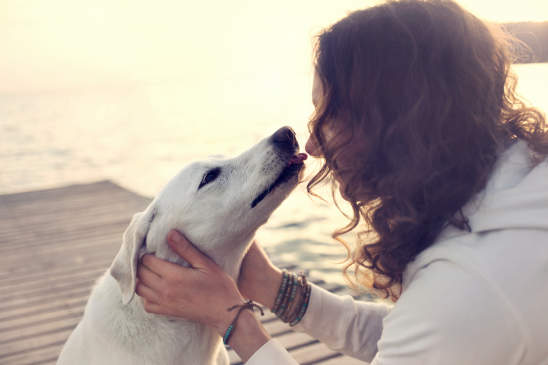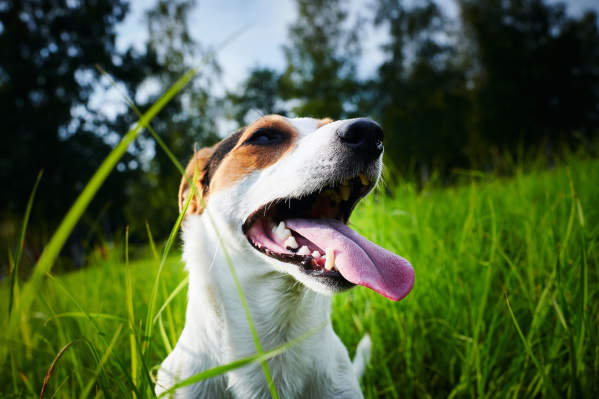Our dogs love to lick us, to get right in our faces sometimes and let us know that we’re loved. Sometimes we may adore those “kisses”; oftentimes, however, we get a whiff of bad breath along with our pup’s undying devotion and it spoils the affair.
What makes our dogs breath smell so bad? And is there anything we can do to stop or prevent it? Read on to find out what could be causing your dog’s halitosis and learn what you can do to mitigate it.
What Makes My Dog Have Bad Breath?
A dog’s bad breath is most commonly a sign of periodontal disease, where a build-up of plaque and tartar cause bad breath and sometimes even more severe symptoms like inflamed gums and loose teeth. Smaller dogs are usually more prone to have teeth issues (they live longer and their teeth are oftentimes set closer together), but according to the American Veterinary Medical Association, most pets will have some signs of periodontal disease by the time they’re 3 years old.
The American Veterinary Dental College outlines four stages to periodontal disease, ranging from Stage 1, where your pup’s gums are slightly red and swollen, to Stage 4, where there is significant bone loss, which is something that a veterinarian would only be able to see via X-ray.
There are also other less common potential causes for bad dog breath, including diabetes (breath may have a sweeter or fruity smell in this case), kidney disease (breath may smell like urine) and liver disease (usually also accompanied by other symptoms like vomiting and a lack of appetite). No matter what the cause though, if your dog’s breath smells, it may be time for a vet visit to determine whether your pup is sick and, if the diagnosis is periodontal disease, determine what stage your pet has and what the best course of treatment will be.

How Can I Treat My Dog's Bad Breath?
If your visit to the veterinary office comes with a diagnosis of periodontal disease, your vet will likely take some X-rays to determine what stage of the disease your dog has. If your pup has a later stage, your veterinarian will likely recommend comprehensive dental cleaning under anesthesia, where they will clean the teeth below the gum line where most of the bacteria that causes periodontal disease lives. This under-the-gum cleaning is something that can’t be done unless your dog is under anesthesia, which is why anesthesia-free cleaning won’t likely get rid of your pup’s bad breath in the long run, and may open up to worse, more costly, issues later on, like bone loss and tooth extraction.
The good news is that post-cleaning, your dog will once again have a healthy mouth and nice-smelling breath. At this point, there are things you can do at home to keep your pup’s teeth and gums (and their breath) in good shape.
Just like with us, daily brushing of your dog’s teeth is the best way to prevent periodontal disease and its associated bad breath. Enzymatic toothpaste works best, and there are variety of dog-friendly flavors, like Poultry that some dogs love so much, they actually look forward to getting their daily teeth cleaning. Whatever toothpaste you use though, make sure that it is made for dogs and not humans, as pet-friendly toothpaste not only tastes better to your pet but is also safe for them to swallow.
If your dog is resistant to having their teeth brushed, there are dental wipes your veterinarian can prescribe as well as prescription-only food that help limit the build-up of plaque and tartar. You can also make sure that the snacks or treats your dog has help promote oral health as well; dental veterinarian Jan Bellows, for example, recommends treats that are nutritious but not too salty and have received the seal of approval from the Veterinary Oral Health Council. Try a few out to find something that your pet loves to chew, because the more they chew, the more oral benefits they’ll receive.
If you take these preventative steps and have your vet check your dog’s teeth at least once a year, your dog will not only avoid having horrible breath (provided they didn’t get into the trash or snack on some roadkill on the street, at least), but also will be healthier overall. Soon you’ll be back to accepting your pup’s “kisses” unabashedly, and both of you will be better for it.
